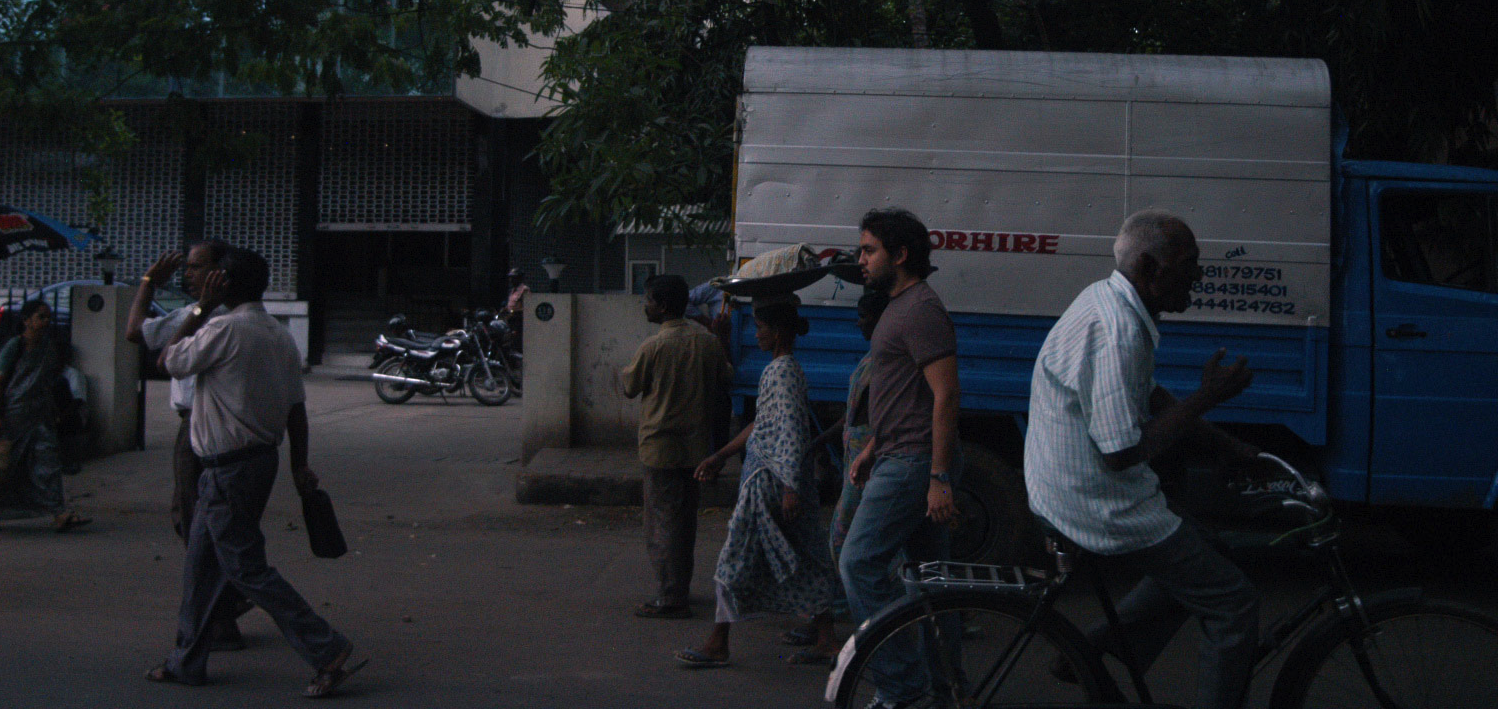Indian American Fourth of July
For one year from 2007-2008, Amar traveled around the world reporting on how people from all walks of life view the United States through text and video. The following is one of a number of posts from India. For more, click here.
Chennai - Until now I've been exploring what people around the world think of America. But at times like last night, drinking rum and cokes with U.S. sailors in a Chennai club, or today wondering how to commemorate America's Independence Day so far away, I confront how others see me.
I met the sailors the way I do most new faces on this trip. “Hi” I said to a 22 year-old from Oregon. He stared at me quizzically: “You don’t have that funny accent?”
“No, man, I’m a DC lifer!” I slap his back. With that, the distance between us slammed shut and we passed the rest of the night exchanging horror stories abroad. I’m American.
But before I opened my mouth, I wasn’t, at least not to him. That’s certainly reasonable: I’m a brown-skinned guy in India, after all. But at the time, I really wished he’d recognize me as an American right away.
Indians here seem to have some sixth sense for Americans. Before I speak they know I am one, or at least that I’m Western. This is unsettling, not just because I have to bargain harder, but because deep down, I do want to be recognized and trusted here right away too.
So I asked a local journalist to Indian-ize me. I'm thinking “Indian Eye for the American Guy.” He sized me up. My shoulders are bulky, hair un-plated, un-oiled, essentially un-groomed, and my demeanor "confident bordering on arrogant." Verdict: lost cause.
About all that fits me is the label:
American Born Confused Desi: ABCD.
I was born in DC to Indian immigrant doctors. I didn't learn Hindi growing up; my parents thought I'd fit in better that way. It went too far and in eighth grade I pretended to be Italian, Sicilian. Call me “Armani Bakshi.” Concerned family pulled me from the brink. But still no Indian parties. No close Indian friends until college. Only curry made the cut every Sunday. But I still get sick over my first few meals in Delhi. "How do you feel as an Indian American here?" the journalist asked me.
"Frustrated,” I eventually responded.
Frustrated that I can't drink the water, or eat golgappas because they burst with local water. Frustrated at the language barrier. And I just don’t get some quirks here: like the corny humor, or the way men touch each other publicly, or how "yes" can be deployed without carrying a commitment. All the difficulties of not being Indian.
Then from being American I'm frustrated by the sycophancy that wafts my way -- that extra-kindness reserved for foreigners with deep pockets. It's attention that goes too far. A couple of U.S. dollars can buy a day of labor here. A fifty-rupee tip, one dollar, delights a waiter. There’s frustration at having and not being sure what to do with it.
There are whole scenes that frustrate for this very reason, like sitting in a rickshaw while a small boy with a scalded red arm that looks like it's growing lizard scales scratches my hand begging for ten rupees: "Sir…please, sir."
These are frustrations born of distance and high expectations. As an Indian American, I expect to belong here and to know instinctively how to react to India. This is because the country has occupied a romantic space in my psyche -- first as a dark land to run from, then as an exciting home I never knew. In college I learned about Bhangra and the Bhagavad Gita. Amazing.
So there’s a connection to this place which I can’t define. Probably because it’s mostly a fantasy. I struggle with which emotions to allow and which to suppress. Should I be outraged when I see the boy with the burns? Reserved, practical, hopeful? All this seeps out uncontrolled.
“So do you think of yourself as just American?” the Indian journalist asks. It’s a tempting offer. Responsibility washes away. Expectations evaporate. And all I’m left with is a bit of annoyance over the sailor unsure of my nationality. But I answer his question right away: "No, I'm Indian American." I want it all.
Sure, I'm a failed chameleon. I stick out wherever I go. But both countries allow me the freedom to do just that. I won't be able to celebrate with lots of sailors tonight because protests in Chennai against their presence and rough waters have stranded the majority of them out at sea.
But I feel perfectly comfortable celebrating the Fourth of July here with any sailors who make it, with some bored Indians looking for a Wednesday night out, or alone, enjoying the time to think more about where I belong.
